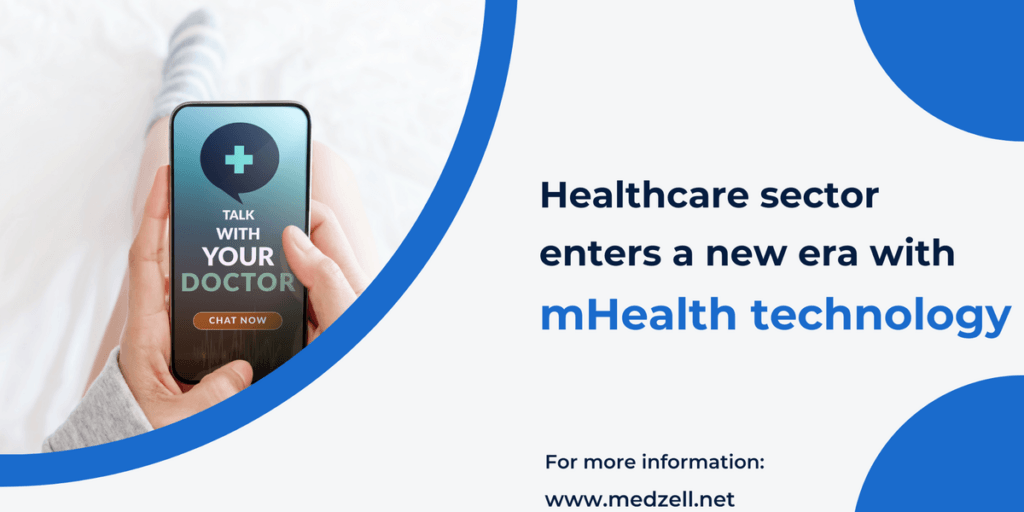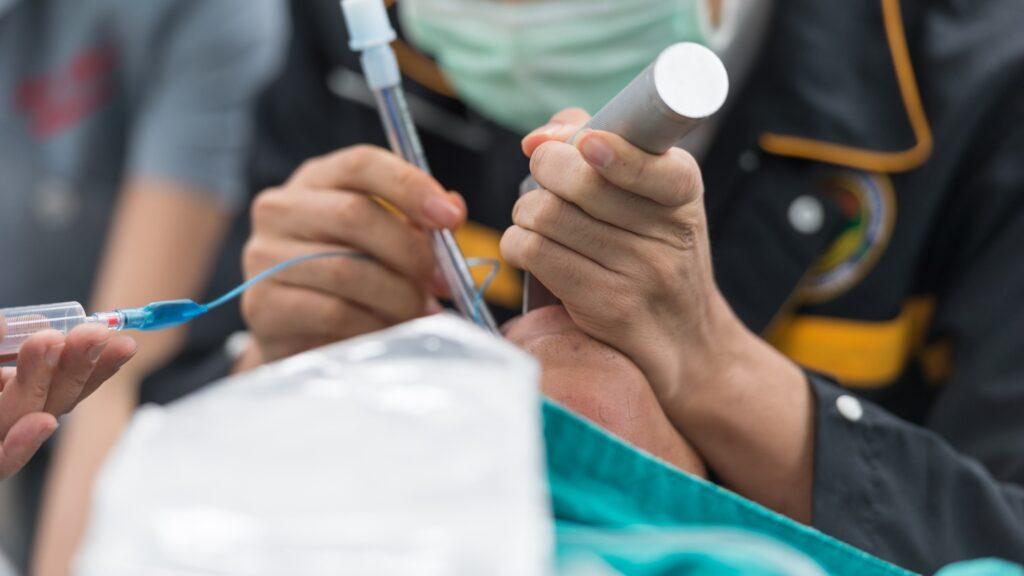The healthcare sector has undergone digital revolutions to effectively handle the current challenges faced by the industry. The range of technologically advanced healthcare solutions has significantly expanded as a result. These new technologies and solutions primarily address clinical diagnosis, treatment, and disease management requirements. Healthcare providers around the world are increasingly utilizing mobile health, or mHealth, and those who adopt it as part of their digital transformation path will be better able to increase employee productivity and patient happiness.
What is mHealth?
The Global Observatory for eHealth of the World Health Organization defines mHealth as “medical and public health practice supported by mobile devices, such as mobile phones, patient monitoring devices, personal digital assistants, and other wireless devices“. To be more precise, it refers to the usage of wireless devices and phones in medical care. Utilizing mobile technology to inform customers about preventative healthcare services is the most common application of mHealth.
Evolution of mHealth
Smartphones have played a crucial role in this growth of digital informatics by enabling speedy access to both convenient material creation and storage. When the usage of smartphones increased among the medical staff these technologies showed great promise in the medical field. While the smartphone has been the driving force behind the shift from E Health to Mobile Health (mHealth), other mobile technologies have been introduced to the market that have the potential to be equally as effective.
Benefits and Challenges of mHealth
The mobile health technology has been used in numerous ways to get the effectiveness of it for the providers and the patients.
-
mHealth provides faster access to the providers and care to the patients in a much easier way when connected while maintaining the privacy of patients.
-
The system does indeed help to improve adherence to medications and ensure medication reconciliation accuracy, which benefits the safety of patients.
-
Various devices that uses this mHealth technology ease the care and monitoring of remote patients.
-
The provider’s communication and coordination with patients while booking appointments, timely consultations, etc. are improved by such methodical means of connection.
-
Ultimately, this allows the patients to have an active participation in their own healthcare.
Whilst having great advantages and convenience through mHealth, it has its own challenges as well. These include:
-
Affordability and connectivity of these devices pose a major concern
-
There is no assurance of the privacy and security of an individual’s healthcare data while using such apps, which could be a great problem.
-
As the information provided by such apps is technologically driven, it is not 100 percent trustworthy. Any flaw in the system could give inaccurate information.
Effectiveness of mHealth Technology in Healthcare Sector
Using mobile technology provides developing nations like India with a great chance to advance in the delivery of healthcare by efficiently utilizing limited resources even as they experience rising urbanization and population expansion. There are favorable conditions for the development of mHealth in India because of the country’s largely underserved healthcare market, high mobile phone penetration, and quickly rising smartphone use. The same holds true for countries in Africa like Nigeria, Tanzania, where mobile phone usage has increased rapidly over the last decade, and mHealth Apps have been helpful in supporting the existing healthcare system by identifying the barriers.
mHealth Apps also use artificial intelligence with algorithms and sensor technologies, which actually contribute to more accurate diagnosis of diseases by accessing and processing massive volumes of patient data. A new paradigm was set in motion by the COVID-19 pandemic for the healthcare sector. As a result of the forced lockdown and hesitancy in people, the importance of mobile health applications increased and was accepted widely. For example, several mobile health applications are now widely used by people around the world for the procurement of medicines, for maintaining fitness and wellness etc. The trend is expected to grow and the adaptations seems to be faster than before.
Medzell also strives to support Indian MedTech startups who come up with innovative mHealth solutions that can create a huge impact across the globe in terms of health care delivery. One such product that you can find on Medzell is Fetal Lite, an innovative cloud connected & AI powered fetal heart rate monitor developed by InnAccel Technologies Pvt. Ltd. You can also find more telemedicine and healthcare IT products developed by leading manufacturers here.
Future of Healthcare Sector with mHealth Technology
From USD 83.491 million in 2019, the Indian mHealth market is expected to grow at a CAGR of 10.11% to USD 163.835 million by 2026. Globally, the mHealth market size was estimated to be around USD 56 billion in 2020 and is projected to grow at a CAGR of over 30% from 2021 to 2030. A growing acceptance of mHealth devices by patients will drive the demand for the product since they allow them to track health-related information.The market for mHealth applications has undoubtedly been pushed by the rise in smartphone usage. The adoption of mHealth applications is regularly encouraged by the Indian government, which wants to change the nation’s approach to healthcare. The National Digital Health Mission was formed by the Ministry of Health and Family Welfare to quickly connect individuals to the top doctors online.
Conclusion
As demand in this sector is increasing day by day and with a pandemic around, mHealth Apps and its services are also evolving with new innovations. As compliance and security are regulated, people’s involvement and engagement in these Apps are hiking day by day. It is imperative that healthcare providers take advantage of mHealth technology to stay ahead of the new challenges in the industry. Overall, mHealth and the apps have enormous potential to change the medical environment and improve consumers’ health.
References
-
https://www.skedulo.com/future-of-healthcare-and-mobile-healthcare-tech/
-
https://www.carecloud.com/continuum/what-is-mobile-health-technology/
-
https://www.journalmtm.com/2012/the-evolution-of-e-health-mobile-technology-and-mhealth/
-
https://www.internetrights.in/the-rise-of-mhealth-and-top-five-mhealth-apps-in-india/
-
https://www.researchandmarkets.com/reports/5397929/india-mhealth-market-forecasts-from-2021-to-2026


